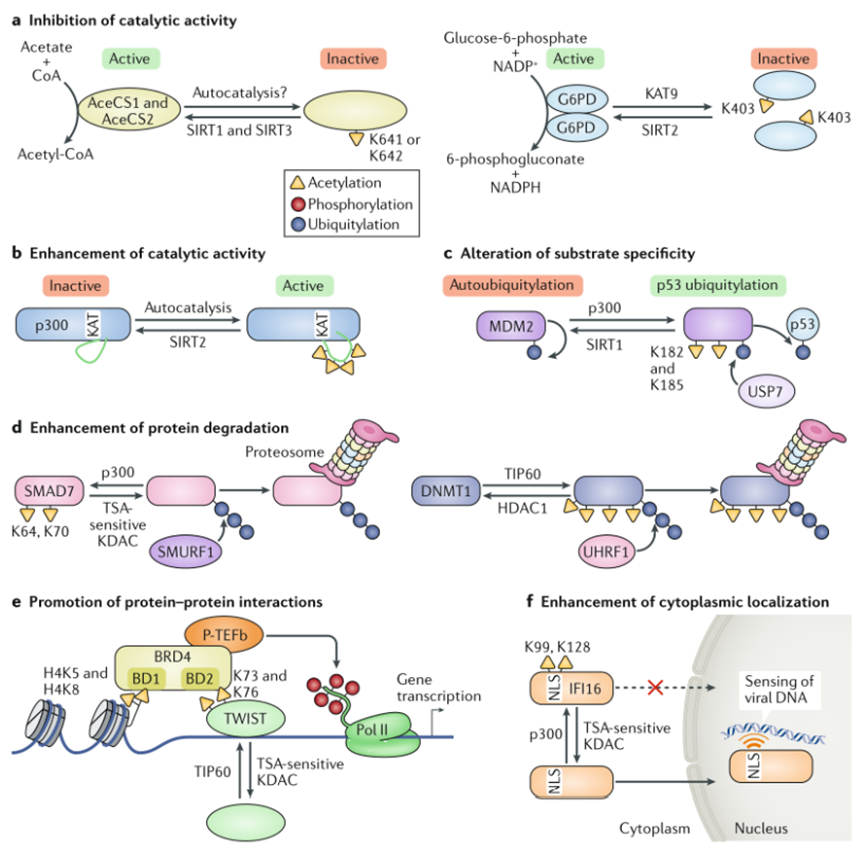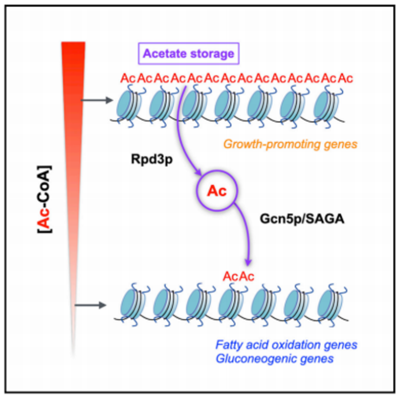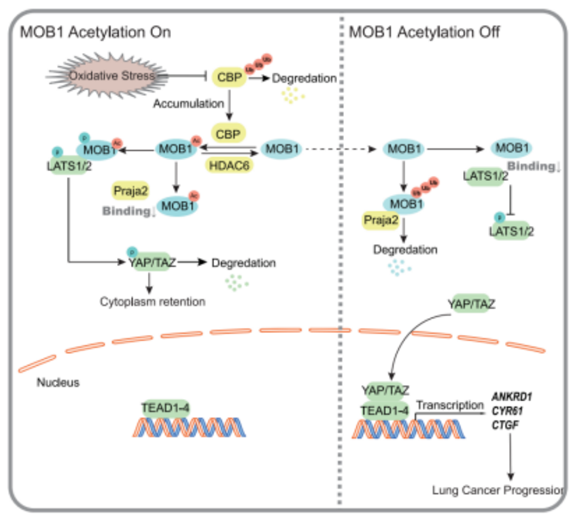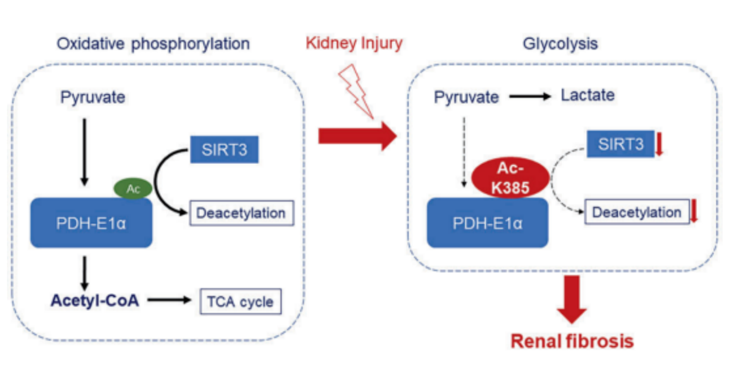Interested in our services
Contact our experts to provide further information



Acetylation is the most common type of post-translational modification, which refers to the process of transferring acetyl groups, such as acetyl-CoA, to protein lysine residues under the catalysis of acetyltransferase.
Acetylation modification is regulated by acetyltransferases (HATs/KATs) and deacetylases (HDACs/KDACs), which are commonly found in cellular chromatin structure and a variety of metabolic enzymes in humans. These enzymes play crucial roles in metabolic diseases, regulation of metabolic pathways, and activity of metabolic enzymes.
Proteomics research on acetylation modification mainly focuses on the regulation of cell transcription and the regulation of metabolic pathways. This research provides new insights for the development of drugs that regulate metabolism and offers important guidance for revealing the disease mechanisms, including tumors.

Epigenetic regulation:Acetylation modification of histones is an important epigenetic mechanism, which plays an important role in transcription regulation, chromatin dynamics, development and life span regulation, cell fate determination and other biological functions.

The transcriptional regulation of acetyl coenzyme A under starvation stress (glucose deprivation) was studied using a yeast model. It was discovered that starvation stress reduces the content of acetyl coenzyme A in cells, subsequently inducing the overall reconstruction of histone acetylation. This redistribution of acetyl groups promotes the acetylation and transcription of gluconeogenesis and lipid metabolism genes. This study provides insight into the dynamic remodeling of histone acetylation under starvation stress and its novel regulatory mechanism on the transcription network.
Regulate signal transduction:Non histone acetylation modification involves a variety of cellular processes and is also the main regulator of gene transcription. It is involved in gene transcription regulation, signal transduction, cell apoptosis, DNA damage repair, protein aggregation and so on.

Oxidative stress stimulation, as a potential physiological and pathological factor, can promote the acetylation of Mob1 by up regulating the acetyltransferase CBP, which does not depend on the activity of mst1/2 and the phosphorylation modification of Mob1. In this way, Mob1 is like a "signal intensity sensor", which senses the intensity of upstream oxidative stress stimulation and acetylates to varying degrees. By controlling the activation of lats1/2, it regulates the degradation and nuclear translocation of downstream effector Yap, and then regulates the activation of Hippo signal pathway.
Metabolic regulation: Metabolic regulation is not only the most important function of acetylation modification, but also the most basic and important function of biology. Important biological processes, such as tumor metabolism, growth and development, disease occurrence and development, plant stress resistance, immune regulation, are closely related to acetylation modification.

This study is the first to analyze acetylation. SIRT3 is a key regulator of mitochondrial protein acetylation and metabolic homeostasis. During the occurrence of renal fibrosis, the deacetylation modification of pdhe1α by SIRT3 participates in the regulation of mitochondrial energy metabolism, thus inhibiting renal fibrosis. This study also reemphasized the important function of acetylation modification in renal diseases, and pointed out a new direction for the subsequent development of targeted drugs to inhibit renal fibrosis.
Interested in our services
Contact our experts to provide further information